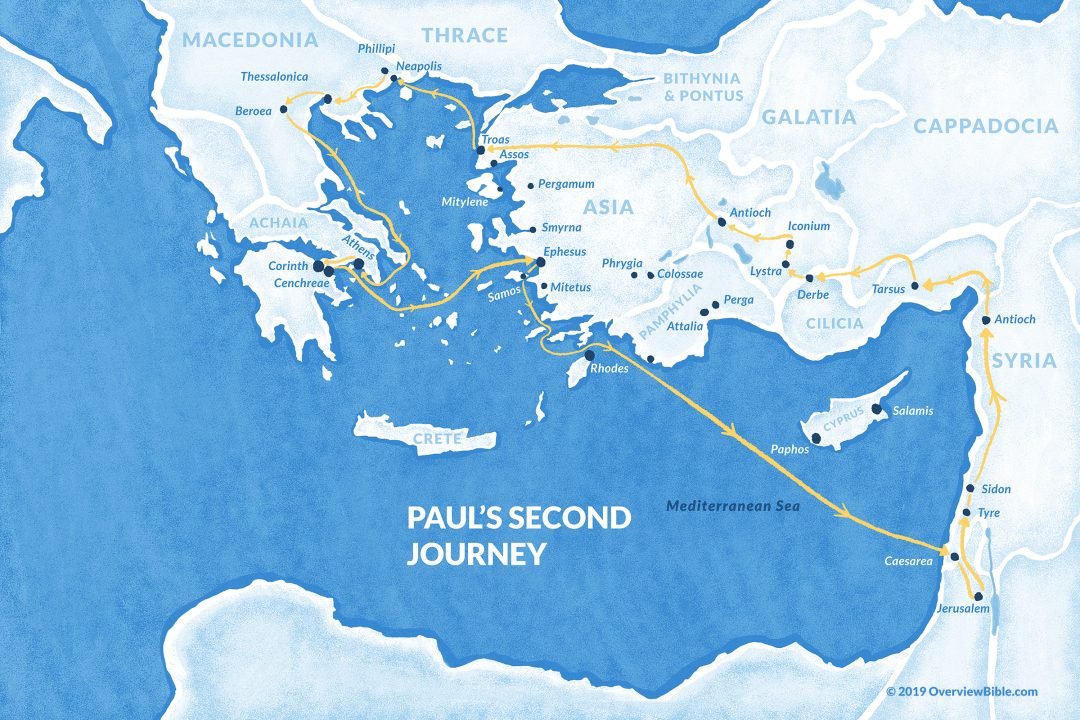Journey
/When he had seen the vision, we immediately tried to cross over to Macedonia, being convinced that God had called us to proclaim the good news to them. -Acts 16:10
A lot of the book of Acts tells the story of Paul’s three huge missionary journeys. All of Paul’s letters - Corinthians, Thessalonians, Galatians, Philippians, etc - were written to churches that Paul encountered or helped to found in cities where he traveled. Paul’s missionary journeys were a key aspect of making Christianity into a world religion rather than remaining a more local sect or offshoot of Judaism.
His first missionary journey was the shortest one, sticking pretty close to his own city of Tarsus in regions we now know as Syria, Turkey and Cypress. His second one, meant to be a trip to re-visit all the places he went the first time, ended up going much further up the coast of Turkey and ends rup in Macedonia, which is modern day Greece. Our Acts reading this Sunday marks when Paul first brought the Christian faith into Europe. He went there again on his third journey, and he also was at work later in Rome when he was imprisoned there.
How did Paul plan his itineraries? Sometimes he’d have a vision - like the one that led him to Macedonia. Sometimes, the next step came to him in prayer or in a dream. Sometimes he felt an urging of the Spirit. In other words, Paul didn’t really plan his journeys. He went wherever he felt called to go, even if it ended up being a completely different trip than he might have imagined. And he met all kinds of interesting people, like Lydia, who we’ll read about this Sunday, who became a big supporter of Paul in Greece, as well as a faithful follower of Jesus.
Paul’s life is a metaphor for a spiritual journey. It’s less carefully planned than it is emergent. It does not have a defined duration, taking as long as it takes. There is no defined goal, although important work is constantly crossing your path and inviting you to engage with it. Because you can’t plan, contain or definit it, a spiritual journey requires an open mind, open ears and an open heart. At the same time it’s not for the faint hearted. It brings risk, change, loss, consolation, struggle, deep rest, and ultimately a great reward.
Paul has his fans and his detractors, but you can’t deny that he was an amazing and pivotal figure in Christian history. I used to bristle at just about every word he wrote, but now I love almost everything he says. I guess I’ve traveled with Paul long enough to recognize both his strengths and his shortcomings, and can now better discern the heart of what he was most deeply about.
May we all find that same kind of kinship with the saints and one another as we continue traveling together on our common spiritual journey here at St. James.









